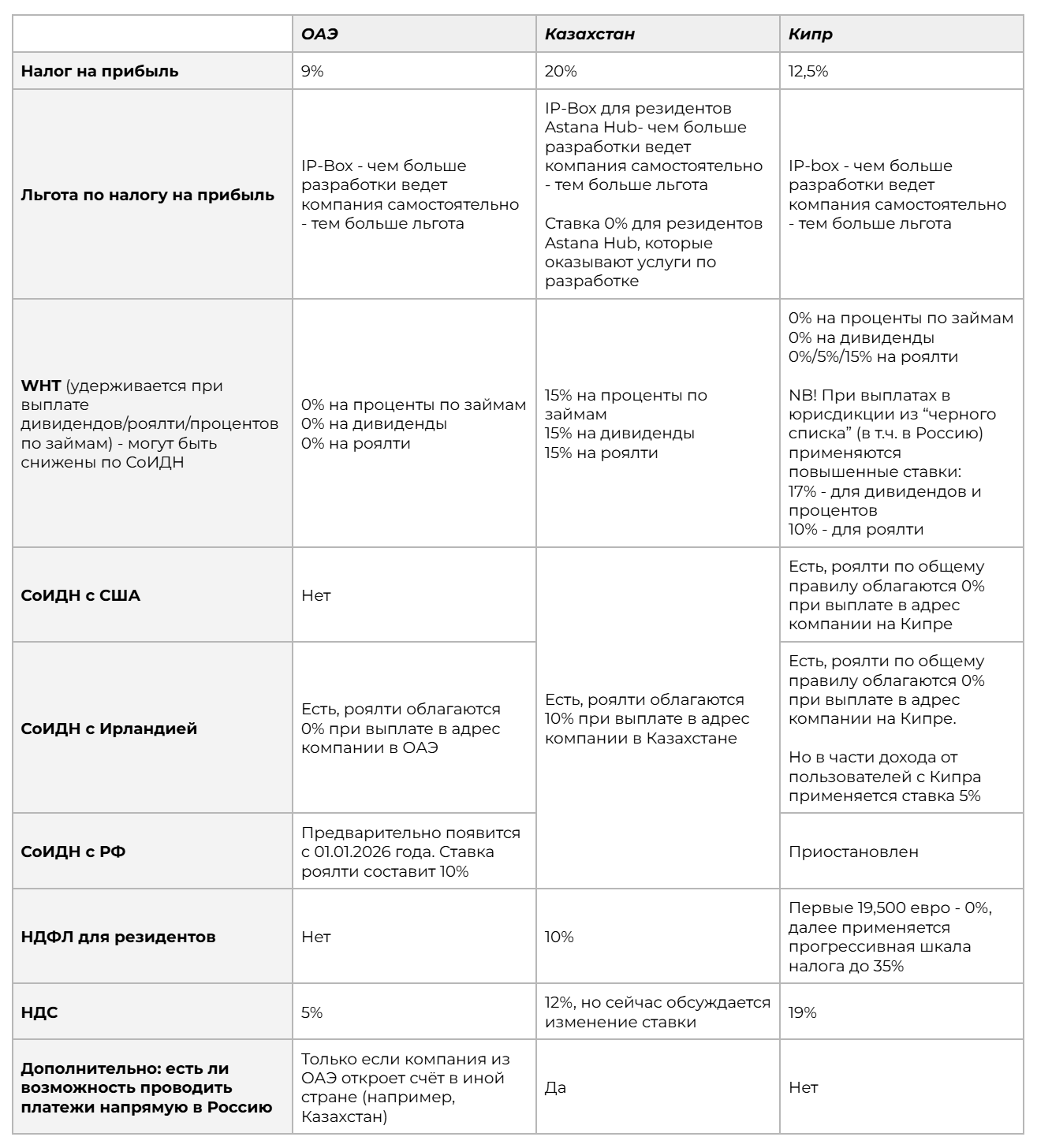How to Sell Games Abroad While Developing in the CIS: A Practical Guide by FUTURA
Under sanctions, game developers and publishers from the CIS face difficulties in generating revenue from overseas markets. To address this problem, they can form a new company abroad that can receive revenue from foreign users. How to approach this and what to pay attention to is explained in a guide for App2Top by attorneys Roman Motorin and Nazar Volkov from FUTURA.
Disclaimer: This article is for informational purposes only and is not legal, tax, or other professional advice. Before making decisions based on the provided information, individual case specifics must be considered and consult with relevant specialists.
Roman Motorin and Nazar Volkov
What to Consider When Choosing a Country for Company Registration?
First, note that there is no universal solution that suits all development studios. The choice of any country and the organization of your corporate and contractual structure will, in any case, depend on your unique features and will require compromises — it could be more expensive to maintain a company in one country, higher taxes in another, and certain options unavailable in a third (e.g., transferring funds to Russia).
Determining where to open a company depends on several parameters. These parameters should be clarified before selecting a country for registration. Specifically, consider:
- The founder's citizenship. The situation is simpler if some founders hold foreign passports. When setting up companies, and especially opening bank accounts abroad, the citizenship of the founders and company directors can play a significant role. In some countries, companies with Russian founders cannot open a bank account, while in others, such a company might face additional compliance procedures, etc.
- Stores for your game distribution. For example, if your PC game is distributed on Steam, look for a country that has a tax treaty with the USA to avoid double taxation: Valve could withhold tax at source up to 30% if your country lacks such an agreement.
- Whether you need a legal entity in Russia. Consider whether you require tax benefits available to IT companies in Russia (5% profit tax, grants, and benefits from Skolkovo, etc.)
- Work format with staff. Are your employees ready to register as individual entrepreneurs/self-employed to work for a foreign company, or do they need to remain on employment contracts with a Russian company?
- Whether the revenue in Russia covers development costs. If not, and you depend on foreign revenue, you should note that transfers to Russia are only possible from certain countries. If Russian revenue covers development expenses, more options exist for foreign companies to retain revenue for other purposes.
- Relationships between your Russian and foreign companies. Contractual and corporate links between your companies can be organized differently:
- You can make all your companies "sister companies" by distributing shares among the founders;
- You can create a single holding company that owns all companies;
- One founder can be a shareholder of one set of companies (e.g., Russian ones), and another can own another set (e.g., all companies in the UAE). Each option has its advantages and disadvantages: one structure protects against the risk of losing control over part of the business or a business split, another is more convenient for attracting investments, and another helps avoid transfer pricing questions. It is vital to consider your needs and factors when deciding how to organize your business.
- Where you would like to store rights to your games. Different companies prefer different approaches to where they fix rights to their main assets. Some prefer to secure rights within a holding in a safe and stable jurisdiction to avoid risks like nationalization, business takeover, insufficient property rights protection, etc. Others fix rights where it’s necessary for tax benefits (e.g., Kazakhstan). Many, in the 2020s, prefer not to put all their eggs in one basket and distribute game rights across different countries.
- Where founders plan to live in the coming years. The primary goal of most companies is to generate income for their founders: via profit creation, explosive company growth and cash-out options, or other mechanisms. Where, under what visa, and legal status founders live will determine their status as tax residents in a country. If a founder moves from Russia to live in another country, they mostly become a tax resident there. This brings various tax implications that need consideration. For instance, if your Russian company pays dividends to you in Kazakhstan, Russia taxes you at 10% on these dividends. If you live in Armenia, depending on several factors, you could lose either 5% or 10% in Russian taxes on these dividends. In Portugal, you could lose the full 15%. Furthermore, founders usually must pay taxes in the country they reside in and use different rules on deductions, offsets, and adjustments on their personal income tax. For example, in Kazakhstan, you can offset withholding tax (10% from the example above) against your personal income tax, whereas, in the USA, you likely cannot. The UAE does not have personal income tax.
Remember that every case is unique. We listed key questions to address before proceeding with country selection for opening a company.
It’s also advisable to share responses to these questions with your consultant before they offer company registration options.
Among our clients venturing into international markets, the most popular options currently are the United Arab Emirates, Kazakhstan, and Cyprus.
Next, we will focus on these countries, covering basic parameters affecting founders' decisions — taxes and the cost of establishing and maintaining companies.
What Taxes Are Required in the UAE, Kazakhstan, Cyprus?
The primary tax aspects to consider when selecting countries for company registration include:
- Income tax rate. Income tax is the primary tax payable to the government where the company is established. This tax is calculated at a fixed rate on the company's profits (i.e., the difference between its income and expenses).
- Income tax benefits. Many countries aim to attract businesses with various benefits, the most important for this context being income tax relief.
Tax benefits can vary, such as:- A fixed preferential tax rate requiring special registration or meeting formal criteria (a prominent example is the reduced 5% rate for companies accredited by the Ministry of Digital Development);
- Reducing taxable profit (e.g., IP-Box in Cyprus or Qualifying intellectual property income in the UAE). This benefit is variable — dependent on what portion of the development is done in-house versus outsourced to affiliated persons;
- Increased coefficients for deducting development expenses (e.g., spending N dollars on development might allow deducting N*2);
- Income tax exemption up to a certain amount (e.g., Small Business Relief in the UAE) or from specific sources (e.g., in Hong Kong, its territorial taxation system can exempt foreign-source revenues not connected to Hong Kong business if specific conditions are met).
- Requirements to pay tax on royalty or dividend payments. Most countries have specific rules for withholding tax on foreigners’ incomes as royalties, dividends, or loan interest (withholding tax, wht).
- Tax agreements. Withholding tax on royalties, dividends, or interest can be legally reduced if countries have signed a double taxation avoidance agreement — usually reducing tax rates under such agreements to preferential 0/5/10%, plus they offer additional benefits, such as the right to credit foreign withholding tax against national corporate/personal income tax.
The table below reflects these and additional aspects for the UAE, Kazakhstan, and Cyprus.
How Quickly and at What Cost Can Companies Be Opened in the UAE, Kazakhstan, Cyprus?*
While planning a budget for establishing a company abroad, various factors should be taken into account:
- Costs to establish a company. Typically, establishing a company requires paying a state fee, setting up the share capital of a legal entity, paying for local provider services, opening a bank account for the company, and undertaking several other actions.
- Ongoing regular payments. Beyond registration costs, companies will incur ongoing maintenance expenses—like office rent, secretarial services, bookkeeping, and tax accounting.
The table lists the cost and timeframes for opening companies referring to the UAE, Kazakhstan, and Cyprus.
Note that parameters in the table are approximate and may change over time.
Consultant fees for assisting with company setup and maintenance, registration costs in privileged zones like Astana Hub in Kazakhstan, and travel expenses (e.g., founders’ physical presence is needed to open a company in Kazakhstan) are excluded here.
*parameters may vary depending on the territories within the UAE where a company is registered.
What Agreements Are Needed to Start Operating a Group of Companies?
Once a company is registered and an account opened, you're ready to set up your companies’ relations.
Often, several contracts need to be concluded between your new and Russian company to:
- distribute responsibilities — who handles distribution, development, holds game rights, and more;
- authorize the new company to receive revenue from foreign platforms;
- establish cash flow between companies.
Typically, publishing agreements, detailing the interaction between companies, can cover this issue.
Contracts must also be formed with employees engaged in development through the new company. This extends to other employees interacting with a Russian company (if no existing contracts). These contracts should contain provisions indicating that all company product rights belong to the company.
Remember: a growing IT business's primary asset is its intellectual property. It’s crucial not to overlook proper formal recording of your developments and rights distribution, as ignoring this can negatively impact business growth later—such as reducing company valuation during a sale to investors.
What Next?
Legal questions don’t conclude with setting up a company abroad and arranging cash flows. Game companies continually face them while distributing their products, for example:
- What game content and advertising rules exist in different countries and need compliance?
- How to protect your brand from competitors worldwide?
- Can a game be registered to secure rights for oneself?
- How to employ remote staff and deal with the ensuing tax consequences?
- How to properly integrate others’ products into one’s game?
- Can different game versions be made for different markets from a legal standpoint?
- How to properly establish agreements between company founders?
- How to set up an options plan to reward top employees?
- How to arrange relationships with new investors?
- How to properly sell a company share or issue new shares for a new partner?
- How to collect debt from a counterparty?
Focusing on such legal details can help avoid many additional risks, create a solid basis for growth and stability in the international market. Experts at FUTURA may assist with these questions, and services can be ordered through the WN Hub platform.


